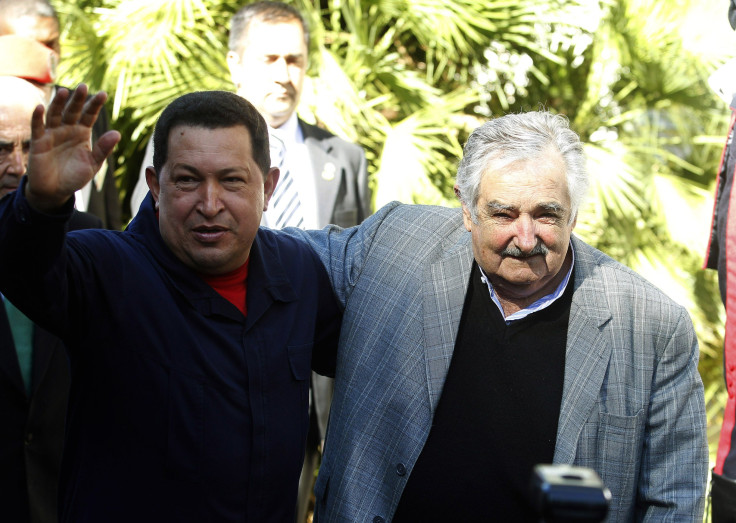Chávez Ideology Will Last - Take It From A South American President

Uruguay’s president José Mujica has said that the socialist ideology of the late Venezuelan president Hugo Chávez will persist as a political movement, likening it to the legacy of Juan and Evita Perón in Argentina.
“We are going to see a ‘Chávist’ process without Chávez become a political movement with extraordinary characteristics, something like ‘Justicialismo’ with Peron and Evita in Argentina, and it will last for a long time,” Mujica said, Mercopress reported.
“And this is so because there is a gigantic aura surrounding Chávez that you see and feel expressed in many different ways,” he added. “In politics you can discuss programs, ideas, plans -- but it is hard to beat a myth.”
Since taking office in 2010, Mujica had enjoyed friendly ties with Chávez, though his political views were more moderate than his socialist ally.
Mujica, a former communist guerilla during the 1960s and 1970s, has since tempered his more radical views while embracing social progressivism, regulated capitalism and the democratic process, similar to the Peronist ideology of the Judicialist party that has gained popularity in Argentina since its introduction in the 1940s.
Chávez’s brand of so-called “Bolivarian” socialism -- named after the 19th century revolutionary Simón Bolívar who led rebellions against Spain in South America -- advocates for firm government control over national resources and key industries like oil, investment in social programs and greater economic and political cooperation between like-minded governments throughout Latin America.
“Chávism” or “Chávismo” has also been criticized for its concentration of power in the president’s office, its hostility toward free market economics and its lack of democratic protections for minority viewpoints.
© Copyright IBTimes 2025. All rights reserved.





















